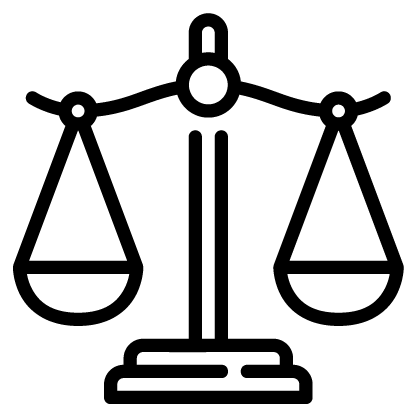Academic integrity breaches: responding to an allegation
If a student is suspected of plagiarism or academic dishonesty, the matter may be handled by the unit coordinator or Educational Integrity Coordinator (EIC), depending on whether the integrity breach is considered a minor or major breach.
All allegations of contract cheating will be handled by the Office of Educational Integrity and referred to the Registrar.
The University takes academic integrity very seriously. There are 3 types of academic integrity breaches:
On this page we explain each type of academic integrity breach, and how to respond.
Contact us immediately if you receive a misconduct allegation. An accusation of academic misconduct can have serious consequences for your degree.
Minor breaches of academic integrity
If a student is considered to have a minor breach, such as plagiarism and recycling, unit coordinator’s are empowered to resolve the matter. If you have no previous breaches, your unit coordinator may direct you to undertake an approved development activity on academic integrity. You may also receieve a penalty applied to the assessment or task. For example, a mark reduction, or having to submit a corrected version of the assessment with a maximum mark.
If you have a prior record, the unit coordinator may determine your matter constitutes a more serious breach and will refer your case to the EIC.
How to respond to a minor breach allegation
You must follow the instructions on the notification letter you receive from your unit coordinator. If you disagree with the decision that you have committed a minor breach, you can appeal. Instructions on how to appeal are included at the bottom of the notification letter.
Major breaches of academic integrity
If you are suspected of a major breach, this will be investigated by your faculty’s Educational Integrity Coordinator (EIC). You will be notified of the allegation through your student dashboard. You will be asked to respond before any decision is made.
Major breaches include:
- plagiarism
- recycling content from your previous assignments
- using fake or false research data
- getting someone else to complete or contribute to an assessment
- bringing unauthorised calculators, written notes or other banned items into an exam
- inappropriate use of electronic devices to access information during an exam
- wearing headphones during an online exam.
How to respond to a major breach allegation
Your allegation notice will have instructions on how to respond. Most allegation notices will request that you respond to the allegation either in a meeting or in writing.
You must reply within 7 days – either to accept a meeting, or by submitting a written response. If your allegation letter only offers a meeting, you may be able to ask to submit a written response instead.
If you do not reply or submit a response within 7 days, you will receive a reminder on day 8. After 15 days, if you still have not submitted a response, a decision will be made without it.
We recommend that you do the following:
- Get advice from us: when you receive an allegation of a major breach, contact our casework service. One of our professional caseworkers will assist you in understanding how to respond, ensure you understand the process, review your written response, or help you prepare to attend the meeting.
- Keep all of your documents and drafts: this includes relevant emails and faculty letters. Make sure to keep copies of study notes or draft versions of assessments, group chats or any other relevant documentation that may assist you in responding to an allegation.
- Request key documents: your faculty must give you relevant and marked-up assessment items and, if applicable, the associated Turnitin compatibility report. If you do not receive these documents, please respond to the Educational Integrity Coordinator listed on your allegation letter and request a copy.
- Cooperate, but do not volunteer too much information: while you must be truthful and polite in your dealings with your faculty, you do not have to disclose information that is not helpful to your own best interests.
- Respect the process: once you receive an allegation of a major breach of academic integrity, a formal and confidential process has commenced. Do not contact your teaching staff, other students that were involved in group work for the assessment, or any another student involved in the allegation.
- Remember, you can appeal: you can appeal any decision made by the EIC, including appealing the form or severity of a penalty. If you are not happy with the decision you should consider making an academic appeal and contact us for advice.
- If you are a higher degree by research (HDR) student: you should also read about academic integrity for HDR students.
Try to stay calm. The process is designed to be fair to you.
Possible outcomes
The EIC will consider your response and all the evidence. They will then decide whether there has been:
- no breach
- a minor breach
- a major breach
- possible misconduct, to be referred to the Registrar.
While the possible outcomes and penalties vary from case to case, the University’s Academic Integrity Decision-Making and Penalty Guidelines 2023 is the policy that guides these decisions.
If no breach has occurred
The EIC will inform you and your unit of study coordinator. Your work will be assessed on its academic merit and no penalties will be applied.
Penalties for a minor breach
If the EIC decides you are responsible for a minor breach, this will usually result in the following penalty:
- a mark reduction
- a mark reduction proportionate to the unattributed content.
If this is your second minor breach, you are likely to receive a more severe penalty.
Penalties for a major breach
If the EIC decides you are responsible for a major breach, they may decide to:
- apply a mark penalty to your assessment – either a fail grade, a mark penalty or a mark of zero
- apply a mark penalty to your unit of study – either a fail grade, a mark penalty, or a mark of zero
- require you to undertake a development course.
If this is your second major breach, you are likely to receive a more severe penalty.
If you have more questions about a major breach allegation, read our frequently asked questions, or contact us for advice.
Academic misconduct
At its most severe level, academic dishonesty can constitute academic misconduct. Academic misconduct investigations can lead to heavy penalties that include suspension or exclusion from your degree. If you receive an allegation of academic misconduct, you should contact us immediately, before you respond to the University.
If the EIC decides that the actions might constitute academic misconduct, research misconduct, or a breach of the Student Charter, they will refer the matter to either the Registrar (coursework) or the Director (research). You will receive a notification asking you to participate in a misconduct investigation.
A common form of academic misconduct is when another person writes or contributes to your assessment, otherwise known as contract cheating. Helping another student by writing their assessment for them, or giving your assignment for them to copy and submit as their own work, is another form of academic misconduct.
More on academic misconduct allegations (frequently asked questions).
Get assistance
- Contact us for assistance from our caseworkers.
- The Learning Centre can assist with paraphrasing and referencing workshops.
Policy
Check the University policy register, in particular:
Download this article as a Word document
Download this article as a PDF
Written by SUPRA Postgraduate Advocacy Service February 2023
Need help?
Our casework and legal services are here for you.

Postgraduate Advocacy Service
Our caseworkers can help with any problems you face while you study at Usyd, from academic appeals to renting.


Stay in touch with us